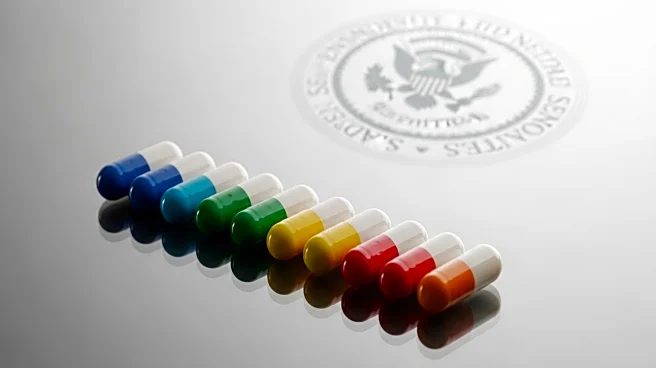What's Happening?
President Trump has issued an executive order that includes tariff exemptions for certain pharmaceutical products as part of a broader trade policy. The exemptions are intended to help meet domestic demand and are part of a list called Annex III, which includes various pharmaceutical-related items such as drug synthesis molecules, vaccines, and cell therapy products. The order also covers non-pharmaceutical items like metals and foodstuffs. These exemptions are part of Trump's strategy to balance trade relations while maintaining national interests. The decision comes amid ongoing discussions about the impact of tariffs on the pharmaceutical industry.
Why It's Important?
The tariff exemptions for pharmaceutical products reflect the administration's attempt to mitigate potential negative impacts on the U.S. healthcare sector. By exempting certain products, the government aims to ensure the availability of essential medicines and support the domestic pharmaceutical industry. This move could alleviate some of the financial burdens on pharmaceutical companies and consumers, who might otherwise face higher costs due to tariffs. However, the exemptions also highlight the complexities of trade negotiations and the need to balance economic interests with national security considerations.
What's Next?
The implementation of these tariff exemptions will likely influence ongoing trade negotiations and could set a precedent for future trade policies. The pharmaceutical industry may see a temporary reprieve from potential cost increases, but the broader implications of the executive order will depend on the outcomes of trade agreements with other countries. The administration's focus on tariffs as a key trade policy tool suggests that further adjustments and negotiations are possible, particularly as the U.S. seeks to strengthen its economic position globally.









